This has been reposted from my school library blog.
On the topic of the teacher librarians’ role and exactly what it is we TLs do in our jobs, I wanted to share this article in The Guardian: Beyond books: what it takes to be a 21st century librarian. We all know that there’s more to being a librarian than stamping books, as the subtitle of the article states. How bothered are we by the fact that a large proportion of our school communities have little idea what we do?
If we stopped the next person walking by on the street and asked them what our jobs as librarians involve, we’d be willing to bet that their first answer would be stamping books. This is because many people’s experience of librarians is of the frontline, customer service staff.
I think the same can be said of school libraries although it varies greatly depending on the interaction between teacher librarians and teaching staff. What the article says about librarians is surely relevant to teacher librarians, librarians and technicians –
If anyone ever thought they’d become a librarian because they liked books or reading, they would be sorely disappointed if they did not also like people too.
Of course, in the digital age, in fact, in the global digital culture in particular, teacher librarians play a vital role in schools. What exactly is the role of a 21st teacher librarian?
It’s not something which can be answered in a simple sentence. For this reason, I want to share links to curated websites on this topic. I am including a list of Scoop.its which have been curated by various people (including me) on the topic of the 21st century teacher librarian. I hope you find this list useful; it includes all things relevant to the 21st century librarian in the broadest sense.
My Scoop.it – What is a teacher librarian?
Curation and libraries and learning – Joyce Valenza
e-Books – Carmel Galvin
Create the web and learn to live – @pipcleaves
21st century libraries – Dr Steve Matthews
Educational technology and libraries – Kim Tairi
Embedded Librarianship – Buffy Hamilton
Graphic Novels in the classroom – @dilaycock
Information coping skills – Beth Kanter
Information science and library studies – Joao Brogueira
Information fluency, transliteracy, research tools – Joyce Valenza
Inquiry and digital literacy – Shawn Hinger
Internet Search – Phil Bradley
Learning – Darren Kuropatwa
Libraries and ethnography – Buffy Hamilton
Libraries and Tumblr – Buffy Hamilton
Libraries as sites of enchantment, participatory culture and learning (what a title!) – Buffy again
Livebinders – Peggy George
Multiliteracies – Vance Stevens
New librarianship – Karen Burns
Personal learning networks for librarians – Donna Watt
QR codes – libraries – NairarbilUCA
Readers’ advisory for secondary schools – Marita Thomson
School libraries – Nickki Robinson
Social media content curation– Guiseppe Mauriello
Social networking for information professionals – Judy O’Connell
The library technician – Dawn Jimenez
Student learning through school libraries – Lyn Hay
Weird and wonderful – for librarians and booklovers – Jean Anning
This selection is only a small fraction of what’s being curated by people passionate about their topic on Scoop.it. It’s overwhelming but also a fantastic way of keeping track of evolving scoops on searchable topics. The fact that the list relevant to teacher librarians is so broad indicates the breadth of the teacher librarians’ focus and involvement. Of course, we can’t do everything but it’s a good idea to see potential involvement, and having seen the bigger picture, delegate to team members (assuming you have a team) the most pressing areas according to their interest.
By the way, Scoop.its are very easy to make and make reading enjoyable in their magazine-scoop-style presentation. It’s easy to follow, to search, to share and to recommend Scoop.its and articles. It’s also a brilliant way to build your Personal Learning Network by investigating the curators, checking out their bio, looking at what else they’ve curated or what they themselves follow.
You’ve got to start somewhere! Happy scooping!

















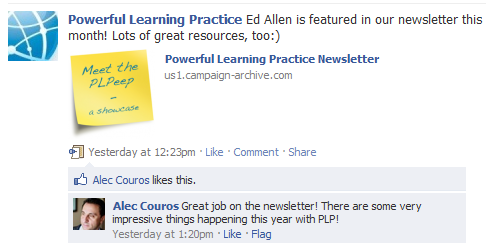
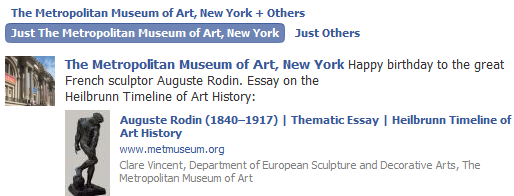








 Photo from
Photo from 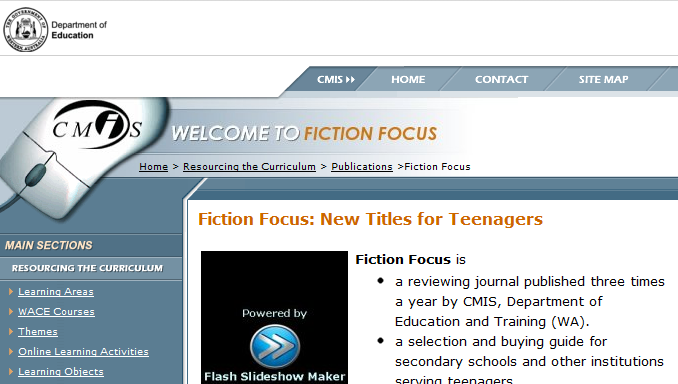
 Photo courtesy of
Photo courtesy of